
Agent vs agent, reliable interfaces and value for money -- artificial intelligence predictions for 2026
Artificial intelligence has been driving much of the technical agenda for the last couple of years and is still evolving rapidly, finding its way into more and more areas.
Here some industry experts look at what we can expect to see from the AI space in 2026.

Adapting to AI agents, growing risks and perimeter focus -- identity predictions for 2026
Identity remains key to cybersecurity with stolen IDs opening the door to many attacks. And with the rise of AI agents and machine identities it isn’t just just humans that we have to worry about. Here’s what some leading industry figures think we can expect from the identity landscape in 2026.
Itamar Apelblat, CEO and co-founder of Token Security, thinks compliance frameworks will need to be rebuilt to account for AI agents. “Traditional compliance models were designed for human-centric workflows, and they are already breaking. Over the next year, frameworks will evolve to recognize AI agents as workforce identities with their own permissions, accountability requirements, and control expectations. Organizations that fail to adapt will fall out of step with regulators and customers.”
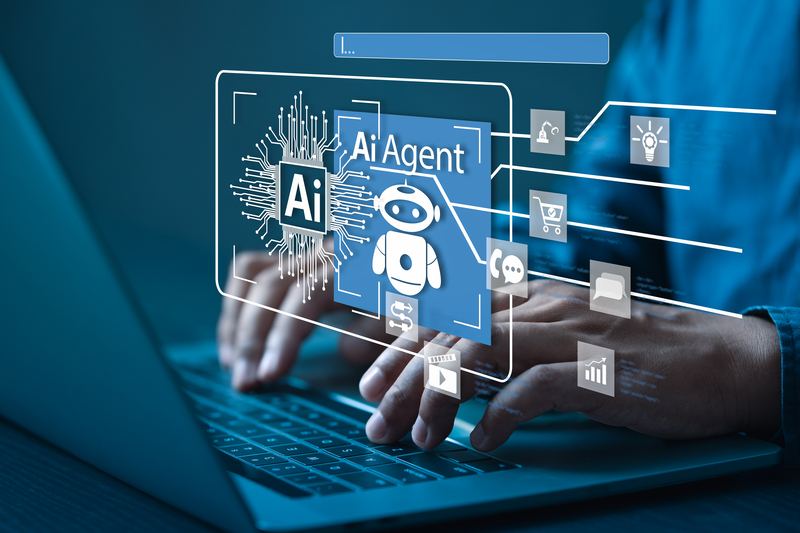
Generative simulators allow AI agents to learn their jobs safely
As AI systems increasingly shift from answering questions to carrying out multi-step work, a key challenge has emerged. The static tests and training data previously used often don't reflect the dynamic and interactive nature of real-world systems.
That’s why Patronus AI today announced its ‘Generative Simulators,’ adaptive simulation environments that can continually create new tasks and scenarios, update the rules of the world in a simulation environment, and evaluate an agent's actions as it learns.
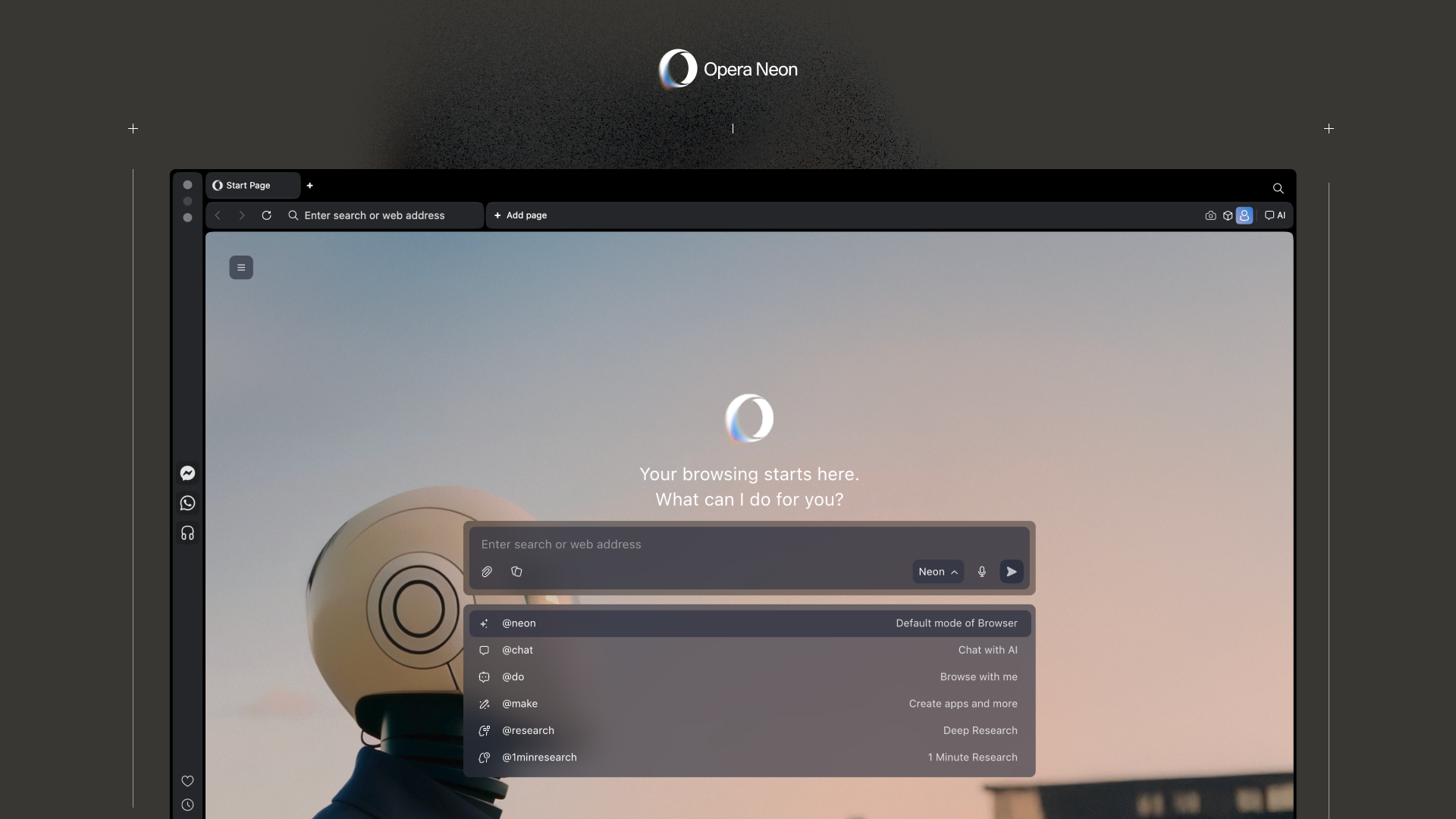
Opera Neon, Opera's experimental agentic AI browser, is now available to all
Two months after its invite-only debut, Opera’s experimental agentic browser, Opera Neon, is now available for anyone to download and try out. Neon is designed for people who want to work with emerging AI tools as soon as they become available.
The software has been in a closed "Founders phase" since early October, and the removal of the waitlist means anyone can now sign up to use it for $19.90 a month.

New report warns of looming agentic AI and quantum fraud risks
A new identity fraud report from AU10TIX looks at how fraud is shifting from isolated attempts to adaptive, self-optimizing systems, and the need for early-warning intelligence to reshape the future of fraud prevention amid rapid advances in artificial intelligence and quantum computing.
“Fraud is no longer a static event; it’s a living signal moving through networks and devices,” says Yair Tal, CEO of AU10TIX. “At AU10TIX, we see the daily challenges our customers face as fraud evolves faster than ever. Our mission is to protect them, not just by responding to attacks, but by anticipating them. Our early-warning system helps ensure their businesses stay one step ahead, detecting risk before truth starts to drift.”
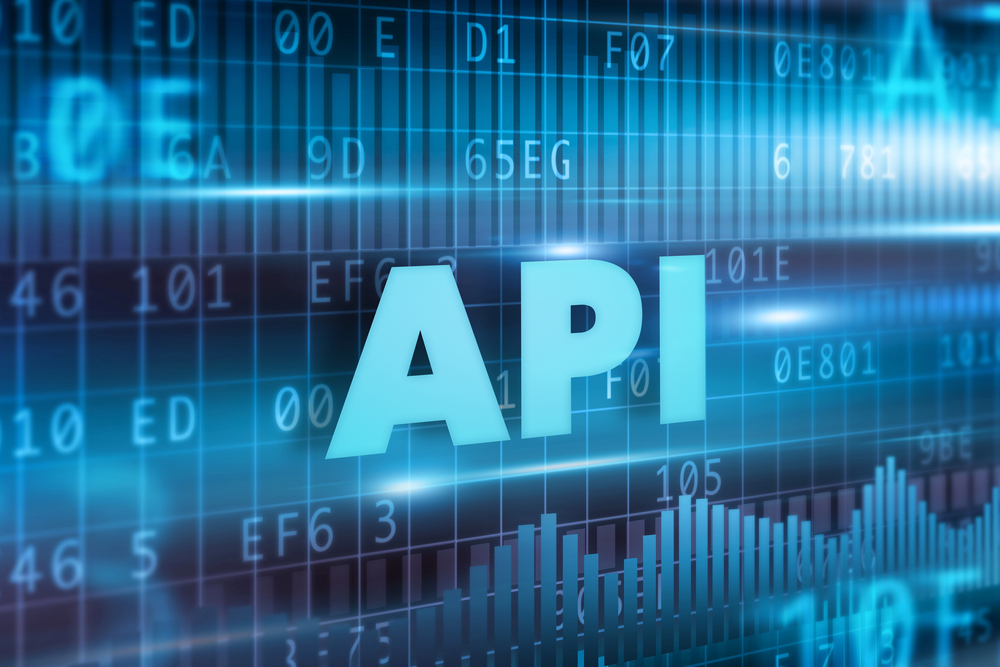
How agentic AI is set to redefine enterprise APIs [Q&A]
The use of AI across modern enterprises in recent years has accelerated, with innovation at the forefront and APIs serving as the crucial enabler behind the scenes.
Now, agentic AI, capable of autonomous actions and decision-making, but this shift exposes several gaps in API documentation, drift in specifications and insufficient safety guardrails, all of which can lead to serious implications for organizations.

Rapid adoption of agentic AI runs ahead of security readiness
New research finds just two percent of organizations with 500+ employees report having no plans or interest in agentic AI. Indeed a significant portion of respondents are already using or interfacing with AI agents for both internal and external tasks.
But the study, from Enterprise Management Associates (EMA), reveals a critical, organization-wide inability to prepare for the identity and security challenges which these autonomous entities introduce.

Sumo Logic brings agentic AI to cybersecurity investigations
Modern security operations centers (SOCs) face a perfect storm of complexity: growing alert volumes, fragmented tools, and pressure to respond faster than ever.
Intelligent operations platform Sumo Logic is announcing new advancements to Dojo AI, its enterprise-grade agentic AI platform for security operations to help security teams reduce alert fatigue, accelerate investigations, and streamline security workflows.

Modern workforce integration -- why AI agents need the same oversight as their human counterparts [Q&A]
Agentic AI is rapidly moving from concept to reality, prompting organizations globally to rethink how they integrate these technologies into their business operations. The use of AI agents in daily workflows is set to rise dramatically in the coming years, raising questions over what organizations need to do to manage them effectively, and what might happen if they fail to do so.
We spoke with Ann Maya, EMEA CTO at Boomi, about the evolution of AI agents, the steps businesses should be taking ahead of deployment, and why the principles of human workforce management may hold the key to responsible use.

Rise in agentic identities leads to increased risk
The AI wave is translating into an increased number of AI agents in the workplace, which equates to a surge of both non-human identities (NHIs) and agentic identities. This is resulting in an urgent focus for CIOs and CISOs on identity threats and recovery.
New research from Rubrik Zero Labs, based on a survey by Wakefield Research of over 1,600 IT security decision makers, finds 89 percent of respondents have fully or partially incorporated AI agents into their identity infrastructure, and an additional 10 percent have plans to.

Intuit launches agentic AI consumer platform for year-round money management
Intuit has introduced an all-in-one Agentic AI-driven consumer platform that combines Credit Karma and TurboTax into a single system to deliver year-round control of personal finances. The company says this unified platform will help users manage credit, debt, wealth building, and tax preparation in one place, powered by advanced AI and supported by a network of 13,000 human experts across the United States.
The platform is built to predict and automate key financial actions, offering what Intuit calls “done-for-you” daily management and wealth optimization. It uses Agentic AI to identify opportunities for users to improve their money situation while combining automation with personalized guidance from human experts. According to the company, this hybrid approach will provide faster access to cash, smarter tax management, and ongoing financial support tailored to individual circumstances.

Agentic AI set to reach mass adoption in 2026
A new survey of global technology leaders across Brazil, China, India, Japan, the UK and US suggests that agentic AI will reach mass or near-mass adoption by consumers in 2026.
The study by IEEE shows top uses are likely to be personal assistant/scheduler/family calendar manager (52 percent), data privacy manager (45 percent), health monitor (41 percent), errand and chore automator (41 percent) and news and information curator (36 percent).
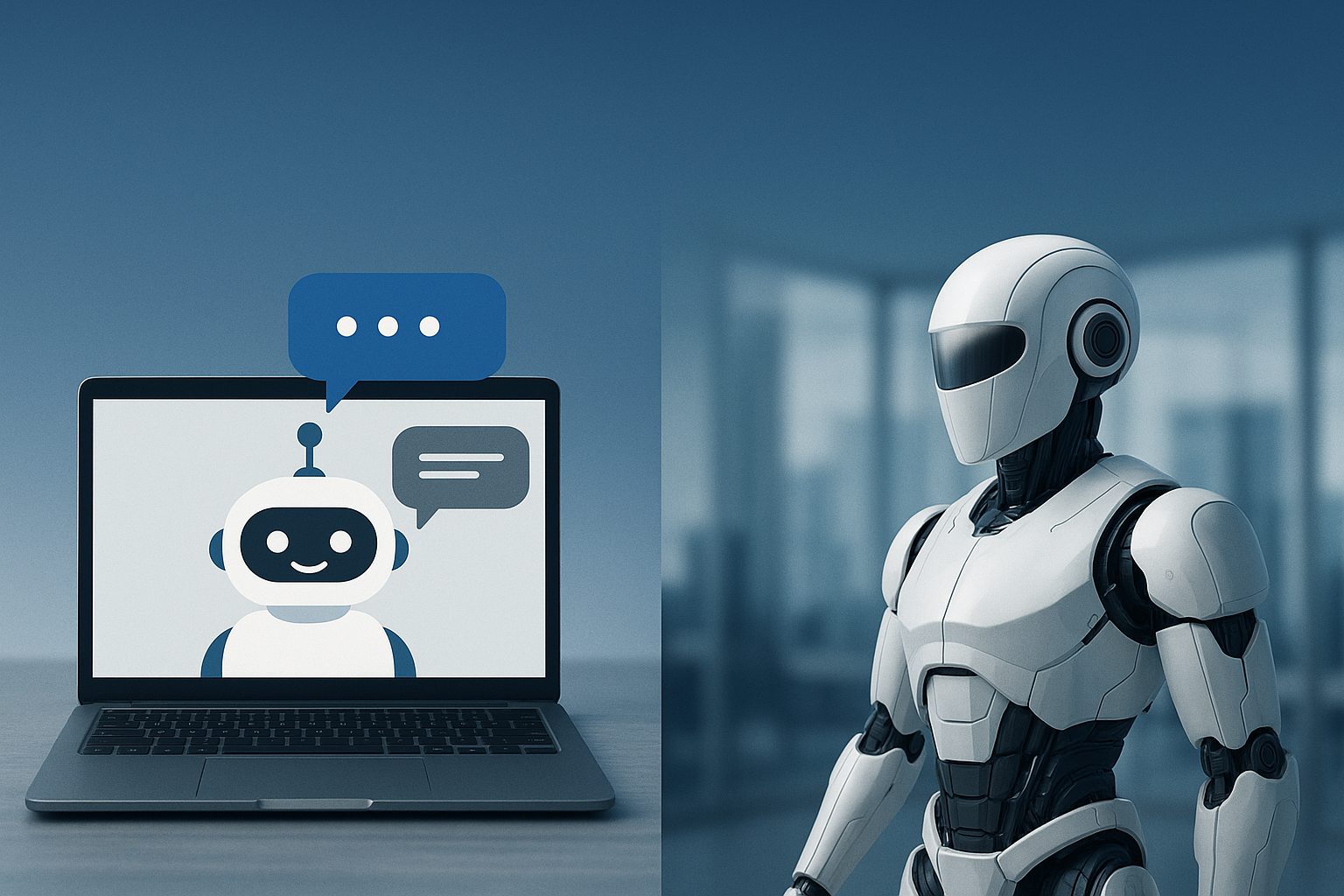
The next wave of AI assistants: From chatbots to autonomous agents
AI assistants, like chatbots, have been providing customer support and functioning in sales and internal support roles for a very long time. Autonomous agents are the next level of AI, as they incorporate reasoning, planning, and execution.
This is already happening on a larger scale in enterprises, with autonomous AI agents streamlining development processes. 79 percent of executives in PwC's report, AI and the Future of Work, maintain that agentic AI is a key driver for prioritizing automation and productivity.

Poor API security practices could put agentic AI deployments at risk
A new report exposes a disconnect between rapid API adoption and immature security practices, which threatens the success of critical AI and automation initiatives.
The study from Salt Security, based on responses from over 380 professionals tasked with managing APIs, finds 80 percent of organizations lack continuous, real-time API monitoring, leaving them blind to active threats targeting AI agents.
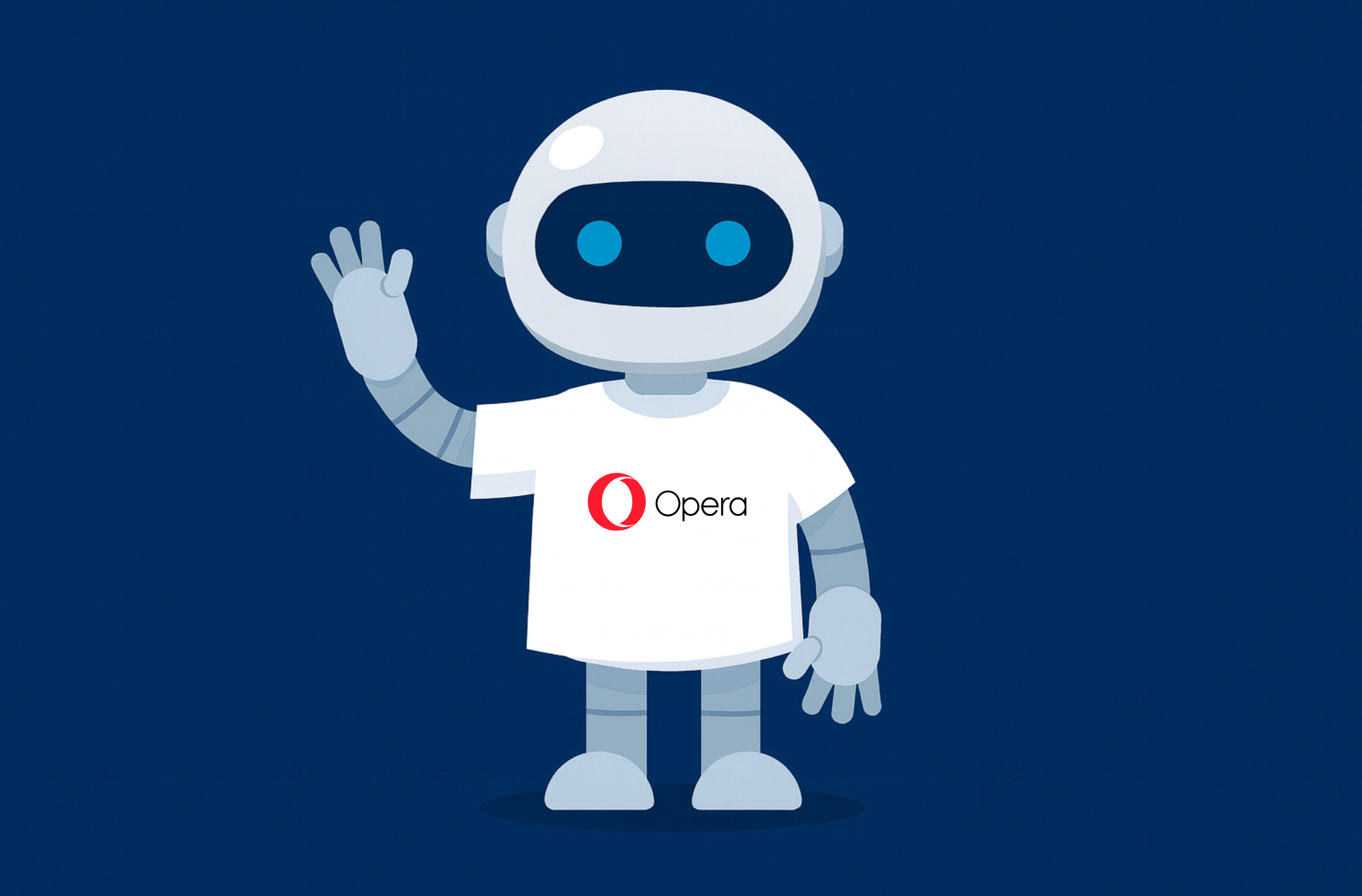
Opera to roll out enhanced native AI features across its flagship and GX browsers for free
Opera has announced plans to add expanded AI capabilities to its free browsers. The news comes just days after we wrote about Opera Neon, the company’s premium AI browser for power users.
Opera has been developing browsers for more than three decades and says it now serves hundreds of millions of active users every month. In recent years it has added a number of AI features to its products, starting in 2023 when it added its assistant Aria to Opera One, Opera GX, Opera Air (its "mindfulness" browser), Opera for Android and iOS, and Opera Mini.
